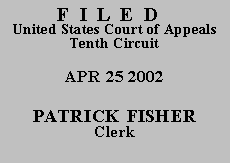

| BOBBY FRANK RENFRO, |
|
As previously noted, Mr. Renfro was convicted of robbery with a dangerous weapon (count I), first degree rape (count II), attempted sodomy (count III), and sodomy (count IV). Aplt. App. at 105-08. He was sentenced to consecutive sentences of 55 years on count I, 99 years on count II, ten years on count III, and 99 years on count IV. Id. His convictions and sentences were affirmed on direct appeal, but on rehearing the sentences were vacated and the case remanded for resentencing. Id. at 141-49. The remand sentences were unchanged. Mr. Renfro unsuccessfully sought postconviction relief. Aplt. App. at 158-63.
In his federal petition, Mr. Renfro raised the following claims on which we granted a COA:
(1) ineffective assistance of trial counsel due to counsel's failure to introduce blood evidence that the alleged perpetrator had Type A blood and Mr. Renfro has Type AB positive blood;
(2) ineffective assistance of appellate counsel based upon the failure to raise ground (1);
(3) a Brady claim based upon a City of Tulsa police report.
We granted a COA after reviewing the lab reports, indicating that Mr. Renfro's blood sample was blood group A, and his Air Force discharge paper, indicating a blood group of AB-Pos., Aplt. App. at 1-4. The lab reports also indicate the presence of antigen A from a rape kit taken from one of the victims.(1)
The OCCA determined that grounds (1) and (3) were procedurally defaulted, not having been raised on direct appeal. Aplt. App. 161. It rejected ground (2) on the merits. As we read the OCCA's merits decision on grounds (1) and (2), it held that Mr. Renfro had not established deficient performance of appellate counsel or prejudice, see Strickland v. Washington, 466 U.S. 668, 687 (1984).
Petitioner makes no showing that a person with type AB blood could not leave an "Antigen A" under circumstances as occurred in G.N.'s rape, nor does Petitioner prove appellate counsel was privy to any information that Petitioner's blood differed from the analysis made of it by Tulsa's forensic laboratory. Thus, Petitioner has not factually established any circumstance which would indicate the District Court erred in finding appellate counsel rendered reasonably effective assistance in the course of Petitioner's direct appeal.
Aplt. App. 162. The OCCA's resolution of ground (2) is not contrary to clearly established federal law, nor based upon an unreasonable application of that law. See Williams v. Taylor, 529 U.S. 362, 412-13 (2000). At best, the evidence Mr. Renfro relies upon is ambiguous. See Aplt. Reply Br. at 8. Given that both victims positively identified Mr. Renfro as the perpetrator and the state's case was not based upon blood evidence, he has not shown that, but for appellate counsel's omission of this issue, there is a reasonable probability that he would have prevailed in his direct appeal. See Smith v. Robbins, 528 U.S. 259, 285-86 (2000).
Given the interrelationship between Mr. Renfro's first three claims, it follows that he cannot prevail on the merits of grounds (1) and (3). In our view, he has not demonstrated, when considering the trial record as a whole, a reasonable probability that the result of the trial would have been different. See Kyles v. Whitley, 514 U.S. 419, 435-37 (1995); Strickland, 466 U.S. at 694-95. Further, the Brady claim in ground (3) is procedurally barred; this is not a case where "a constitutional violation has probably resulted in the conviction of one who is actually innocent." Murray v. Carrier, 477 U.S. 478, 496 (1986); see also Schlup v. Delo, 513 U.S. 298, 327 (1995) ("the petitioner must show that it is more likely than not that no reasonable juror would have convicted him in light of the new evidence"). In light of our disposition, it is unnecessary to decide the issue of whether ground (1) is procedurally barred, as it depends upon evidence not in the trial record. See Sallahdin v. Gibson, 275 F.3d 1211, 1234 (10th Cir. 2002) (procedural bar to ineffectiveness claim requires that OCCA could have resolved the claims based upon trial record alone).
AFFIRMED.
Entered for the Court
Paul J. Kelly, Jr.
Circuit Judge
*. This order and judgment is not binding precedent, except under the doctrines of law of the case, res judicata, and collateral estoppel. This court generally disfavors the citation of orders and judgments; nevertheless, an order and judgment may be cited under the terms and conditions of 10th Cir. R. 36.3.
2. After examining the briefs and the appellate record, this three-judge panel has determined unanimously that oral argument would not be of material assistance in the determination of this appeal. See Fed. R. App. P. 34(a); 10th Cir. R. 34.1(G). The cause is therefore ordered submitted without oral argument.
1. Although Mr. Renfro also argues in ground (1) that the lab report indicates that a pubic hair from one of the victims was inconsistent with one obtained from him, Aplt. App. at 1-3; Aplt. Br. at 9-10, this unexhausted claim is procedurally barred as never having been raised before the state courts, and no showing of cause and prejudice, or a fundamental miscarriage of justice, has been made. See Coleman v. Thompson, 501 U.S. 722, 735 n.*, 750 (1991). Mr. Renfro argues that the claim was asserted in all levels of post-conviction review because the specific components of hair analysis are found in the laboratory report subject to his Brady claim. Aplt. Reply Br. at 6. Our review of the materials supplied in the appendix does not indicate that this claim was raised. Merely because the laboratory report contains hair analysis does not constitute a fair presentation of the issue to the state courts allowing them to apply controlling legal principles to argument and facts. See Demarest v. Price, 130 F.3d 922, 932 (10th Cir. 1997).